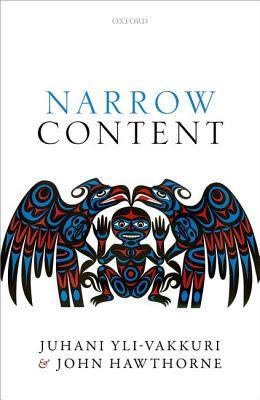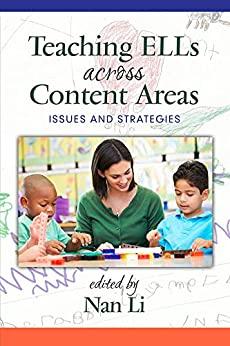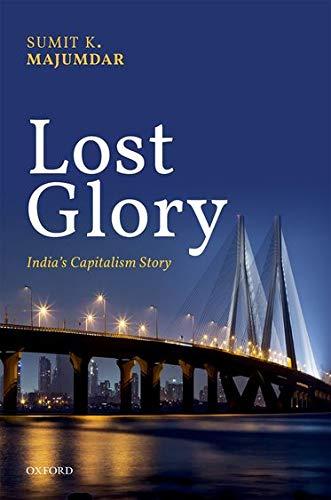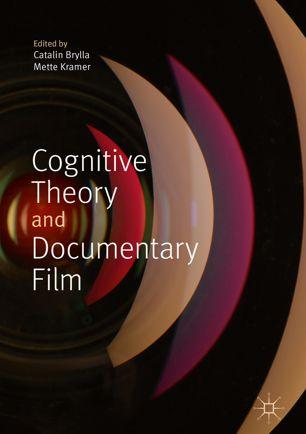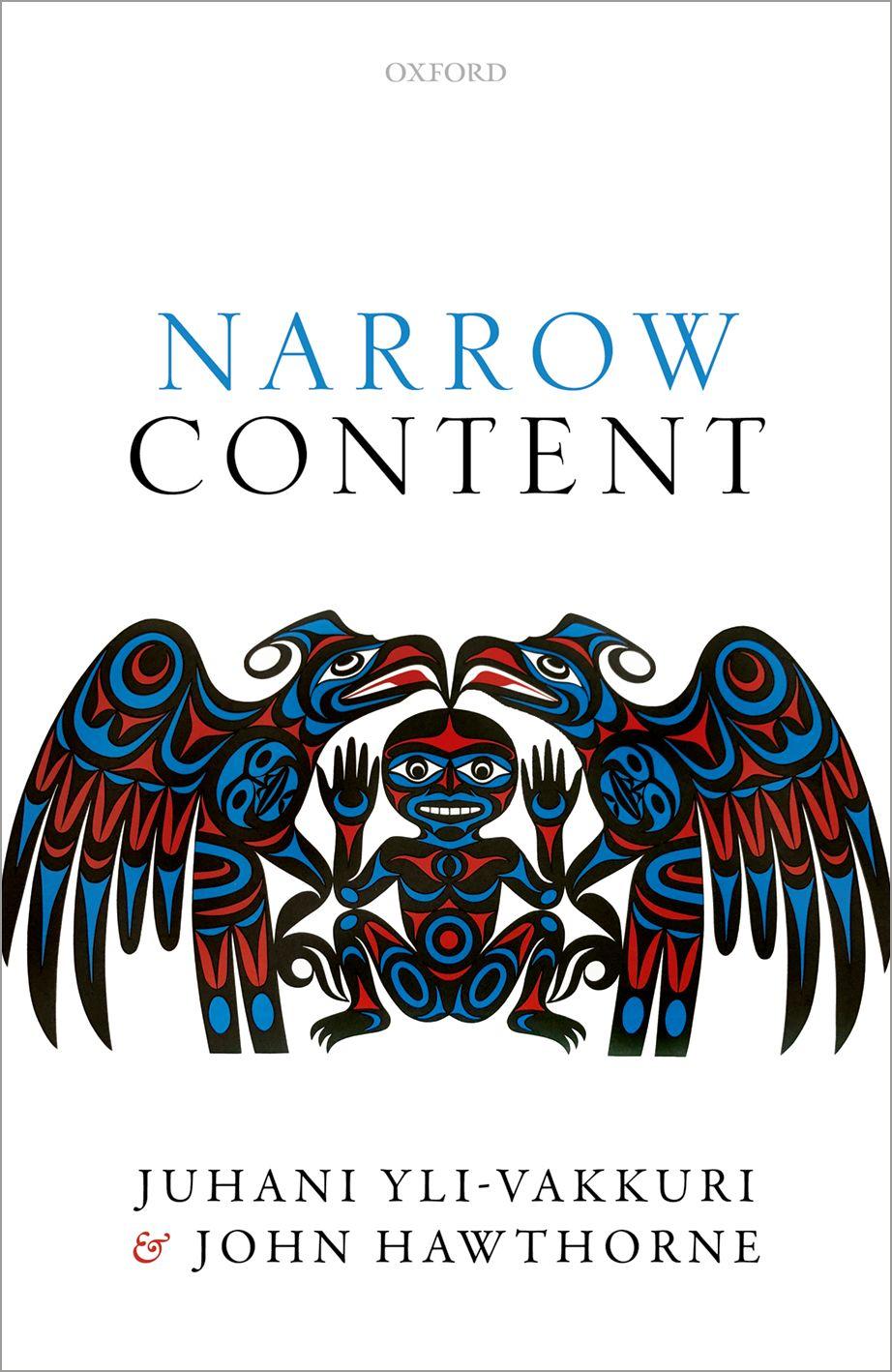NarrowContent
JuhaniYli-Vakkuri andJohnHawthorne
GreatClarendonStreet,Oxford,OX26DP, UnitedKingdom
OxfordUniversityPressisadepartmentoftheUniversityofOxford. ItfurtherstheUniversity’sobjectiveofexcellenceinresearch,scholarship, andeducationbypublishingworldwide.Oxfordisaregisteredtrademarkof OxfordUniversityPressintheUKandincertainothercountries
©JuhaniYli-VakkuriandJohnHawthorne2018
Themoralrightsoftheauthorshavebeenasserted
FirstEditionpublishedin2018
Impression:1
Allrightsreserved.Nopartofthispublicationmaybereproduced,storedin aretrievalsystem,ortransmitted,inanyformorbyanymeans,withoutthe priorpermissioninwritingofOxfordUniversityPress,orasexpresslypermitted bylaw,bylicenceorundertermsagreedwiththeappropriatereprographics rightsorganization.Enquiriesconcerningreproductionoutsidethescopeofthe aboveshouldbesenttotheRightsDepartment,OxfordUniversityPress,atthe addressabove
Youmustnotcirculatethisworkinanyotherform andyoumustimposethissameconditiononanyacquirer
PublishedintheUnitedStatesofAmericabyOxfordUniversityPress 198MadisonAvenue,NewYork,NY10016,UnitedStatesofAmerica
BritishLibraryCataloguinginPublicationData
Dataavailable
LibraryofCongressControlNumber:2017958470
ISBN978–0–19–878596–5
PrintedinGreatBritainby ClaysLtd,StIvesplc
LinkstothirdpartywebsitesareprovidedbyOxfordingoodfaithand forinformationonly.Oxforddisclaimsanyresponsibilityforthematerials containedinanythirdpartywebsitereferencedinthiswork.
Acknowledgements
WewouldliketothankDavidChalmers,CianDorr,JulienDutant,Jeremy Goodman,OfraMagidor,JeffSpeaks,andthreereadersforOxfordUniversity Pressfordetailedwrittencommentsonvariousdraftsofthemanuscript,aswell asJasonTurnerandTimothyWilliamson,whoprovideddetailedwrittencommentsonearlyversionsofthematerialinchapters2,3,and4.Forfurtherhelpful discussionswearealsogratefultoDanielAltshuler,FrankArntzenius,Andrew Bacon,GeorgeBealer,BenCaplan,ChristinaDietz,KatalinFarkas,KitFine, PeterFritz,BenjHellie,TorfinnHuvenes,SandraLapointe,MariaLasonenAarnio,JonLitland,ClaytonLittlejohn,BeauMadisonMount,JessicaPepp, RobertStalnaker,PanuRaatikainen,DanielRothschild,JeffSanfordRussell, GabrielSandu,MargotStrohminger,GabrielUzquiano,SaraKasinVikesdal, RalphWedgwood,JessicaWilson,andaudiencesattheUniversityofOxford, theUniversityofToronto,UniversityCollegeLondon,King’sCollegeLondon, theUniversityofGuelph,McMasterUniversity,theUniversityofOslo,Umeå University,theUniversityofCologne,theUniversityofHelsinki,theUniversity ofTampere,BoğaziçiUniversity,theUniversityofTartu,theUniversityofLeeds, theUniversityofBristol,andthestudentsinJuhaniYli-Vakkuri’sgraduate seminarattheUniversityofOsloinFall2013.Wewouldalsoliketothankthe CentrefortheStudyofMindinNatureattheUniversityofOsloforfundinga workshoponthetopicofthisbook,andtheFacultyofHumanitiesatthe UniversityofOsloforagrantthatfundedanextendedvisitbyJuhani Yli-VakkuritoOxford.Finally,wewouldliketothankPeterMomtchilofffor hishelpfuladviceandencouragement.
Introduction
Acentraltopicinthephilosophyofmindisthecategoryofso-called intentional states.¹Paradigmsincludethoughts,beliefs,andhopes.²Naturallanguageprovidesuswithavarietyofwaysoftalkingaboutintentionalstates.Aparticular intentionalstatemightbevariouslydescribedasa ‘belief ’ ,asa ‘truebelief ’ ,as a ‘viewonthematterofwhethersnowiswhite’ ,asa ‘beliefaboutsnow’ ,orasa ‘beliefthatsnowiswhite’.Atleastonthefaceofit,usingthelastconstruction or aclosevariant,suchas ‘believingthatsnowiswhite’—todescribethestateisaptto bemoreinformativethanusinganyoftheothers.Itisnotsurprising,then,that philosophersofmindhavetendedtofavourthe ‘that’-clause-involvingconstructionsfordescribingintentionalstates,andforthemostpartwewillfollowsuit. Wewillusetheterm ‘thought’ forallintentionalstatesthatareaptlydescribedby ‘that’-clauses.³
Whenonelearnsevensomeintroductoryphilosophyofmind,onelearnsto theorizeabouttheintentionalstatesthatmaybesodescribedusingacertain standardvocabulary.Onelearnstodescribehopes,beliefs,etc.,aseachhavinga ‘content’,andonelearnstotakethe ‘that’-clauseasacanonicalwayofspecifying thatcontent.Thus,onetakes ‘thatsnowiswhite’ in ‘John’sbeliefthatsnowis white’ tobeacanonicalwayofspecifyingthecontentofJohn’sbelief that contentbeing thatsnowiswhite.
Asentencelike ‘Hehopesthathewillgetthejob’ canbeofferedasananswerto suchquestionsas ‘Whatisitthathehopesfor?’ or ‘Whatisthethingthathemost hopesfor?’ Notsurprisingly,then,philosophersareapttospeakofcontentsas
¹Wearenotthinkinghereofstatesascharacteristicsthatmaybesharedbetweenagents,but ratherasepisodes,events,processes,anddispositionsthatareparticulartoasingleagent.Seeour discussionofthoughtsin§1.1forfurtherdiscussion.
²Obviouslyitwouldbeverytendentioustoclaimthatallmentalstatesareintentional.Thestate ofbeingdepressedandthestateofbeinginpainarementalstatesthatarenot,onthefaceofit, intentional.
³Perhapstherearesomeintentionalstatesforwhichthe ‘that’-clauseconstructionsarenotapt. Wewillnotdiscusstheminthisbook.
thingsthatarebelieved,hopedfor,etc.Itisalsonaturaltothinkthatthereare thingsthatnoonewilleverbelieve,hopefor,etc.,orperhapsevenentertain,but thatcouldhavebeenbelieved,hopedfor,etc.,orentertained.Thesethings,too, arecontents.Andperhapstherearethingsofthesamekindthat,foronereason oranother,cannotbebelieved,hopedfor,etc.,byanyoneoranything.(Perhaps somethingsofthatkindaretooelusivetobeevenentertainedbyanypossible mind;perhaps,inothercases,therearepurelylogicalobstaclestothecontent beingbelieved,hopedfor,etc.⁴)Thusitisnaturaltothinkthatthecontentsof actualthoughtsareasubclassofalargernaturalclassofitems thecontents manyofwhichwillneverbethecontentsofanyactualthoughts,andsomeof whichperhapsevencannotbethecontentsofanythoughts(seenote4).
The ‘that’-clausesthatweusetospecifythecontentsofthoughtscanalsobe usedtoraisequestionsaboutwhatistrue.Justaswecanask ‘Doeshebelievethat snowiswhite?’ wecanalsoask ‘Isittruethatsnowiswhite?’ and ‘Iswhathe believes namelythatsnowiswhite true?’ Notsurprisingly,then,itisstandard forphilosopherstothinkofthecontentsofthoughtsasevaluablefortruthand falsity.Accordingtofairlystandardterminology,contentsthatareevaluablefor truthandfalsityarecalled ‘propositions’,andphilosopherstendtotheorizeabout
⁴ Atleastsomecontentsdemonstrablycannotbe known,eventhoughtheyarecapableofbeing true.Forexample,arguably,itisimpossibleforthecontentspecifiedby ‘thatJohnissuavebutno oneknowsthatJohnissuave’ tobeknown.Forsupposesomeoneknowsit;thensomeoneknows that:JohnissuavebutnooneknowsthatJohnissuave.ThenthatpersonbothknowsthatJohnis suaveandknowsthatnooneknowsthatJohnissuave.Sincewhateveroneknowsistrue,itfollows thatnooneknowsthatJohnissuave eventhoughthepersoninquestionknowsthatJohnissuave. Sinceacontradictionfollowsfromthesuppositionthatthecontentinquestionisknown,itis impossibleforittobeknown.Thisisaputativeexampleofapurelylogicalobstacletoknowledgeof acertaincontent.TheformofargumentusedherewasdiscoveredbyAlonzoChurchandreported inFitch(1963),andithasbeenmuchdiscussedinrecentepistemology:seeWilliamson(2000:§12) fordiscussionandcitations.(Theargumentmakesuseoftheprinciple,whichsome findquestionable,thatknowledgedistributesoverconjunctioninthesensethatwheneveroneknowsthat[p and q] oneknowsthat p andoneknowsthat q.Examplesofunknowablebutpossiblytruecontentscanbe obtainedwithoutrelyingonthatprinciple,however:e.g.,eventhoughitispossiblethatnooneknows anything,itisimpossibleforanyonetoknowthatnooneknowsanything.)
Anotherclassofexamplesofpurelylogicalobstaclesnotonlytoknowledgebutalsotobelief, hope,etc.,wasdiscoveredbyPrior(1961):seeBaconetal.(2017)fordiscussion.
Noneoftheseareexamplesofcontentsthatcannotbethecontentof any intentionalstate.There is,however,areasontothinkthattherearecontentsthatcouldnotbethecontentsofanybelief, hope,etc.Thereasonisthattherearenotenoughpossiblebeliefs,hopes,etc.,tohaveallofthe contents thisisso,atleast,ifwethinkofcontents(asweprefertodo)as second-orderentities,i.e., aspropertiesratherthanobjects(wherepropertiesarenottobethoughtofasaspeciesofobject). Thereasoningwehaveinmindbeginswiththeobservation,basedonCantorianreasoning,that therearemoresub-pluralitiesofthepossiblethoughtsthantherearepossiblethoughts.Itthen appealstofurtherplausiblepremisestoarguethereareatleastasmanycontentsastherearesubpluralitiesofthepossiblethoughts.Butwewillnotpursuetheseissueshere.(Fordiscussionofthe relevantCantorianreasoningforpluralities,seeHawthorneandRussell(forthcoming).)
thoughtsinawaythatpresumesthattheyhaveastheircontentspropositionsthat areeithertrueorfalse.(Forthisreason,thethingswearecalling ‘thoughts’ arealso sometimescalled ‘propositionalattitudes’.)Justasa ‘that’-clauseismadeupof varioussub-sententialcomponents,itisatleastrathernaturaltothinkofthe propositionsthatarethecontentsofthoughtsasbeingsomehowbuiltupfrom sub-propositionalcontentscorrespondingtothesub-sententialcomponentsofa ‘that’-clause.So,forexample,ifsomeonebelievesthatEdinburghwillremaininthe EuropeanUnion,itisnaturaltothinkofthecontentoftheperson’sbeliefas somehowinvolvingsub-propositionalcontentscorrespondingto ‘Edinburgh’ , ‘willremainintheEuropeanUnion’ , ‘theEuropeanUnion’,andsoon.
Evenwithoutmakingthisideologymuchmoreprecise,itiseasyenoughto introducetheinternalist/externalistdebatethatshapesandinformsthisbook. Thereisanintuitivecontrastbetweenwhatisgoingoninsideanygivenagentand whatisgoingonoutsidetheagent(wheresomeeventsorprocessesperhaps involveacombinationofboth).Forexample,Juhani’sindigestionoccursonhis inside;thecookingofhistournedosRossinioccursonhisoutside(andperhaps, whenJuhanieatsatournedosRossini,theeatingoccurspartlyonhisinsideand partlyonhisoutside).Assumingwehaveagriponsomesuchdistinction,wecan raisethequestionofwhetherthecontentsofsomeorallthoughtsarefully determinedbywhatgoesoninsidetheagentwhosethoughtstheyareorwhether thecontentsofsomeorallthoughtsatleastpartlydependonwhatgoeson outsidetheagent.(Therelevantnotionofdependencewillbemadeprecisein §1.3,butfornowitwillsufficetosaythatitisnotakindofcausaldependence, butratherakindofmetaphysicaldependence.)
Notethatitisalreadycompletelyobviousthatwhichobjectagiventhoughtis about isnotfullydeterminedbywhatgoesoninsidetheagentofthethought. Forexample,supposeBillhastwoindiscriminablemarblesandthatheputsone ofthem(Marble1)inhispocketandtheother(Marble2)onthetable,sothat Sallycanseethelatterbutnottheformer.Sallywillnowhaveallsortsof thoughtsthatareaboutMarble2butnotaboutMarble1.IfBillhadinstead putMarble2onthetableandMarble1inhispocket,Sallymighthavebeen exactlythesameontheinsideeventhoughherthoughtswouldhavebeenabout Marble1insteadofMarble2.Thiskindofobservationisfarfromnew.The pointthatwhichobjectoneisthinkingaboutpartlydependsonwhatisgoing onintheoutsideworldwasfullyappreciatedbyWilliamofOckhaminthe thirteenthcentury:
One[angel]whointuitivelyseesanactofcognitionofsomesingular[inanother’ s mind]doesnot,nevertheless,intuitivelyseethesingularthingitself....For,evenif anangelweretointuitivelyseetheactofcognitionofsomesingular...nevertheless,
hewouldnotseethatcognition[inthemindoftheother]isofthissingular.... Indeed,eveniftherewereonlyonesingularthingneartotheintellect[oftheother] stilltheangelcouldnotevidentlyknowthatthiscognitionisofthatsingular... ⁵
Ockham’spoint,ifitisn’talreadyclear,isthatanangelwhoonlyhadaccessto theinsideofyourmindwouldnotalwaysbeabletotellwhichexternalobjecta particularactofcognitionofyoursisabout.Thepointisepistemological,butitis naturaltoconstrueOckhamasalsothinkingthat,iftheobjectofyourcognition werefullydeterminedbywhatisgoingoninsideyou,thentheangelwouldbe smartenoughtoknowjusthowitisdetermined,andsowouldbeinapositionto knowwhattheobjectofcognitionis.
Themarbleexampleinvolvedtwopossiblebutnotcompossiblesituations.In eachsituationSallyisthesameontheinsidebuttheobjectsthatherintentional statesareaboutaredifferent.Thisobservationcanbegeneralizedusingthe philosophers’ notionof extension.Theparadigmaticuseofthatideologyisin connectionwithsentencesandtheirconstituents:theextensionofasentenceis itstruthvalue(eithertruthorfalsehood),theextensionofasingularterm(such asapropername)isitsreferent,andtheextensionofapredicatethatcan combinewithonesingulartermtoformasentence(whatiscalledaone-place predicate)isthesetofthingsthatthepredicateistrueof.⁶ Thus,forexample,the extensionof ‘Londonishexagonal’ isfalsehood,theextensionof ‘London’ is London,andtheextensionof ‘ishexagonal’ isthesetofallandonlythe hexagonalthings.Insofaraswethinkofthoughtsasbuiltoutofconstituents correspondingtosentencesandtheirconstituents,wecanhappilytransferthe ideologyofextensionstothoughtsandtheirconstituents.⁷ Themarbleexample illustratedthefactthatthethoughtconstituentcorrespondingto ‘that’ inthe sentence ‘Thatisonthetable’,asutteredbySally,issuchthatitsextension,at
⁵ Ockham, Reportatio,ScriptuminLibrumPrimumSententiarum,quotedin,andtranslatedby, Brower-Toland(2007:322–23).
⁶ Thesearejustsomeexamples.Anymeaningfulexpressionofanaturallanguagecanbethought ofashavinganextension.Forexample,an n-placepredicate(apredicatethat,whenappliedto n singularterms,formsasentence)isstandardlythoughtofashavingasetofsequencesoflength n as itsextension, ‘and’ and ‘ or ’ arestandardlythoughtofashavingorderedpairsoftruthvaluesastheir extensions,andsoon.
⁷ Thenotionofathoughtconstituentisnotthesameasthatofacontentconstituent,justasthe notionofasentenceconstituentisnotthesameasthatofacontentconstituent.Theeasiestwayof carryingoverthelinguisticcategoriestothoughtistoassumethatthoughtisconductedinaspecial internallanguage,the ‘languageofthought’.(Thisidea,too,originatesinthewritingsofOckhaminthe thirteenthcentury:seeNormore2009.SeeFodor1975foramorerecentdefenceofit.)However,thisis nottheonlywayofdoingso:justasonecanthinkof,say,aconjunctivecontentasresultingfromthe applicationofthelogicaloperationofconjunctiontotwofurthercontentswithoutthinkingofthose contentsasbeinginanysensepartsoftheconjunctivecontent,onecansimilarlyunderstandtalkof ‘constituency’ forthoughtsintermsoftheapplicationofsyntacticoperationsonthoughts:see§1.1.
leastpartly,dependsongoings-onoutsideofSally.Butonecanalsocontrive thoughtexperimentstoshowthattheextensionsofthementalcorrelatesof sentencesandpredicatesatleastpartlydependonexternalgoings-on.Suppose, forexample,thatadogisplacedinfrontofSally.Awell-disguisedcatmadeto lookjustliketheactualdogcouldhavebeenplacedinfrontofSallyinstead.We can fillinthedetailssothatinboththeactualandthecounterfactualsituation goings-oninsideSallyarejustthesame,butinthelatterthethoughtSallywould expressbythesentence ‘Thereisadoginfrontofme’ isfalsewhileintheformer itistrue.Sotheextension(truthvalue)ofanentirethoughtcanvaryacross possiblesituationsevenwhiletheinsidesofthethinkerremainthesame.Suppose furtherthatinthecounterfactualsituationsomeactualdog(takeyourpickwhen fillinginthedetails)doesnotexistatall.Thenthereissomething,i.e.,thatdog; thatispartoftheextensionofthethoughtconstituentcorrespondingto ‘dog’ in theactualsituationbutisnotpartofitinthecounterfactualsituation.Andsothe extensionsofthoughtconstituentscorrespondingtopredicatescanvaryacross possiblesituationsevenwhiletheinsidesofthethinkerstaythesame.Allofthis iscompletelyuncontroversial.Thereisverylittlepointinspendingtimeonthe thesisthatextensionscannotvarywithouttheinsidesofagentsvarying,since onlyextraordinarilyeccentricviewswouldlendanycredenceatalltothatthesis.⁸
Wehavebeencelebratingaseriesofuncontroversialpoints.Butnotfaraway therearesomemorecontroversialquestions.Wewishtoisolatefourofthemin particular.Noticethattheabovecaseseachinvolvedagentsinpairsofpossiblebut notcompossiblesituations.Thesecasesshowedthat,fornokindofexpression,or correspondingthoughtconstituent,doessamenessofinnergoings-onacross possiblesituationsguaranteeamatchofextensionacrosspossiblesituations.⁹ However,certainpossiblesituationscontainpairsof duplicate agents thatis, pairsofagentswhoseinnergoings-onareexactlythesame.Andforvariouskinds ofexpressions,ortheirmentalcorrelates,wecanaskwhetherthereisasingle possiblesituationinwhichtherearetwoduplicateagentsforwhomexpressionsof thattype,andtheirthoughtcorrelates,donothavethesameextension.Forcertain
⁸ TheSpinozisticdoctrinethatthereisonlyonepossibleworld whichisequivalenttotheclaim thatwhateverissoisnecessarilyso isonesuchview.
⁹ Yettheremaybeparticularexpressions,orperhaps,moremodestly,particularexpressionsas usedonparticularoccasionsbyparticularagents,forwhichsamenessofinnergoings-onintwo possiblesituationsguaranteessamenessofextension andsimilarlyforthementalcorrelatesof thoseexpressions.Forexample,itwouldnotbecompletelyimplausibletosuggest althoughthis, too,canbechallenged thatwhatgoesoninsideyou fixestheextension(referent)ofthenumeral ‘0’ asusedbyyounow,sothatthereisnopossiblesituationinwhichsomeonewhoisexactlylikeyou actuallyareontheinsidereferstoanythingotherthanthenumber0bythenumeral ‘0’;and similarlyforthecorrespondingthoughtconstituent.
typesofexpressionstheanswerisveryobvious.Forexample,itiseasytothinkofa possiblesituationinwhichthereareduplicateagentswhosecorrespondingproper namesrefertodifferentobjects.Itisalsoeasytoimaginehow,asaresult,some correspondingsentenceshavedifferenttruthvalues.Thuspropernamesand sentencescanvaryinextensionevenacrossduplicateagentswithinasingle possiblesituation,andlikewisefortheirmentalcorrelates.Butperhapsthereare interestingcategoriesofexpressionforwhichsuchvariationisnotpossible.For example,itisnotimmediatelyobviousthatthereisapossiblesituationinwhich therearetwoduplicateagents,oneofwhomisanEnglishspeaker,whoassociate differentextensionswiththewords ‘tall’ , ‘ runs ’ ,or ‘red’.The firstquestion,then,is whetherthereareinterestingkindsofexpression,andmentalcorrelates,forwhich suchvariationinextensionisimpossible.Thesecondquestionconcernscontents, asintroducedabove.Itisclearenoughthatthetruthvalueof,say,anutteranceof thesentence ‘Therearedogswithredbowties’,andofitsmentalcorrelate,can varyacrosspossiblesituationseventhoughthespeaker-thinker’sinnergoings-on don’tvary.Butthatdoesnotbyanymeanssettlethequestionofwhetherthe contentexpressedbyanutteranceof ‘Therearedogswithredbowties’,andthe contentofitsmentalcorrelate,cansovary.Indeed,inthemoststraightforward casesitisnaturaltothinkthatthetruthvaluedoesvarywhilethecontentdoes not.Thesecondquestionisthis:grantedthatextensioncanvaryacrosspossible situationswhileinnergoings-onremainthesame,cancontentvaryinthisway? Hereisathirdquestion:evenifcontentcanvaryacrosspossiblesituationswhile innergoings-onremainthesame,isthereasinglepossiblesituationinwhich thereareduplicateagentswhosecorrespondinglinguisticexpressions(expression utterances)andtheirmentalcorrelatesdifferincontent?Thefourthquestionis this:evenifcontentsingeneralcanvaryinthesecondandthirdways,arethereat leastsomekindsofexpressionsandmentalcorrelateswhosecontentisimmuneto thiskindofvariation?(Fornowwewillassumethatthecontentofanutteranceof alinguisticexpressionanditsmentalcorrelatearethesame,andsimilarlyfor extension;theseassumptionscanbeandhavebeenchallenged.)
Justaboutanyphilosopherfamiliarwiththesequestionsalsoknowsthata seriesofimportantpapersbyHilaryPutnamandTylerBurgeintroducearange ofthoughtexperimentsthatcombinetomakeananti-varianceapproachtoany ofthesequestionsverychallenging.AndindeedjustaboutanypaperincontemporaryphilosophythataddressesanyofthesequestionswillusePutnam’sand Burge’sworkasaspringboard.Letusbrieflyrehearseafewofthekeyideasand observationsofthesepapers.
Putnam’ spaper, ‘TheMeaningof “Meaning”’ (1975),isalmostentirely focusedonwhathecalls ‘naturalkindterms’ like ‘gold’ , ‘water’,and ‘electron’
Thesearetermswhoseextensionspurporttocorrespondtofundamentaldistinctionsinnatureitself,asopposedtotermsforkindslike sausage, cheese,and beer,whicharenotonesweexpecttobestudiedbynaturalscience.Afamous thoughtexperimentinPutnam’spaperinvolvesapossiblesituationinwhich therearetwoplanets,oneofwhichisEarth,exactlyasitactuallyis,andtheother ofwhichisTwinEarth,aplanetthatisalmostexactlylikeEarthandthatis inhabited,in1750,byduplicatesofallofthepeopleonEarthin1750(thehistory oftheplanetswilllaterdiverge).Onedifferencebetweentheplanetsisthat,on TwinEarth,thestuffthat fillstheoceans, flowsinrivers,andsoon,although superficiallyjustlikeH₂O,isnotH₂O thatis,isnotwater,sincewaterisH₂O butisanotherchemicalcompound,XYZ.¹⁰ Whatthiscasedirectlyshowsisthat evenwithinasinglepossiblesituationtheextensionsofnaturalkindtermscan varybetweenduplicateagents:when,inthissituation,Oscar,aninhabitantof Earth,usestheterm ‘water’,thatterm,asusedbyhim,refers,ofcourse,towater thatis,toH₂O whereasthecorrespondingterm,asusedbyOscar’sTwinEarth duplicate,TwinOscar,referstoXYZ,whichisnotwater(eventhough,ofcourse, TwinOscarusesawordthatsoundsandisspelledexactlylike ‘water’ torefertoit). Thiskindofvariationinextensionisinducedbyvariationintheagent’ s naturalsurroundings,butthereisanotherphenomenon,whichPutnamalso discusses,thatcanalsoinducevariationinextensionbetweenduplicateagents withinasinglepossiblesituationwithoutvariationininnergoings-on.This phenomenonhastodowithvariationintheagent’ssocialsurroundings.For manyofthewordsweuse,Putnamthinks,thereisa ‘divisionoflinguisticlabour’ , inwhichordinaryspeakersdefertoexpertsto(partly) fixtheextensionsofsome ofthetermstheyuse.Forexample illustratingthephenomenonwithapairof non-naturalkindterms whileordinaryspeakersofEnglisharetypicallynotable totellthedifferencebetweenasliceofsirloinandasliceoftopsidebyappearance, texture, flavour,etc.,theyneverthelessmanagetoassociatedifferentextensions withtheterms ‘sirloin’ and ‘topside’ bydeferringtoexpertswhoknowthe definitionsofculinaryterms.ToparaphrasePutnam,thedivisionoflabourhere canbepicturedasoneinwhichtherearesomepeoplewhosejobitistoeatsirloin, otherswhosejobitistocooksirloin,andyetotherswhosejobitistoknowthe differencebetweensirloinandothercutsofbeef.Allthreegroupsofpeopleuse theterm ‘sirloin’,buttheextensionof ‘sirloin’ is fixed(holdingotherfactsabout
¹⁰ Theexampleisnotoptimalbecausehumanbodiesaremostlymadeupofwater,so,onemight think,therecannotbe duplicates thingsthatareexactlyalikeontheinside ofallofthehumans alivein1750onTwinEarth.Theproblem,however,iseasyto fix:replace ‘water’ withsomeother naturalkindtermthatdesignatesastuffnotfoundinhumanbodies.
theworld fixed¹¹)bythewaythethirdgroupusestheterm.Thusthereare possiblesituationsinwhichduplicatenon-expertspeakersareembeddedin communitieswhoseexpertsusecertainwordsdifferently(e.g.,byusingdifferent definitionsordifferentcriteria),resultinginadifferenceofextensionbetweenthe duplicatespeakers.Consider,forexample,asituationinwhichtherearetwo countries,CanadaandTwinCanada,withduplicatenon-expertresidents,Sarah andTwinSarah,suchthatthebeefexpertsinCanadause ‘sirloin’ asitisactually usedinCanada,whiletheircounterpartsinTwinCanadause ‘sirloin’ toreferto topside.Inthissituation(providedthatthedetailsare filledinsuitably) ‘sirloin’ as usedbySarahwillhaveallandonlythesirloininitsextension,whereas ‘sirloin’ as usedbyTwinSarahwillhaveallandonlythetopsideinitsextension.Thethought correlatesof ‘sirloin’ willthenalsohavedifferentextensionsforSarahandTwin Sarah,whiletheirinnergoings-onarethesame.(Putnam’sownexamplesall involvenaturalkindterms,buthedoesnotsay,nordoeshegivethereaderany reasonstothink,thatthephenomenonofthedivisionoflinguisticlabouris confinedtonaturalkindterms.)
Ofcourse,nothingimmediatelyfollowsaboutourquestionconcerningcontentorevenaboutlinguisticmeaning.AndindeedPutnamisawareofthis.For example,whileitisobviousthattheextensionofthe first-personpronoun ‘I’ can varybetweenduplicates,Putnamdisplaysanopennesstotheviewthatthe meaningof ‘I’ isthesameforallduplicates.Nevertheless,atleastinthecaseof naturalkindtermsPutnamseemstoassumethatmeaningdeterminesextension, inthesensethatitisimpossiblefortheretobeapairofnaturalkindterms thathavethesamemeaningwhiledifferinginextension.Giventhisassumption, itfollowsthatthetermsusedbytheduplicatespeakersinthescenarioswe havediscusseddifferinmeaning.AndthisisindeedtheconclusionPutnam wishestodraw.¹²
¹¹Theexperts’ useoftheworddoesnotfullydeterminetheextension.Thewaytheworldisin otherrespectswillalsomakeadifferencetotheextension.Forexample,ifsomehow,miraculously, boththeexpertandthenon-expertspeakerswerejustastheyactuallyareontheinside,butthere were,andneverhadbeen,andneverwouldbe,anysirloins,then,plausibly,theextensionof ‘sirloin’ wouldbedifferentthanitactuallyis:itwouldbetheemptyset.(Wearedeliberatelyinsensitivetothe factthat ‘sirloin’ and ‘topside’ canbeusedasbothcountnouns asinthisfootnote andmass nouns asinthemaintext.Itisactuallyunclearwhatkindofentitytheextensionofamassnounis, butthislackofclarityhasnotdetainedthevastliteraturerespondingtoPutnam’spaper,inwhich massnouns mostnotably,ofcourse, ‘water’—areusedasthecentralexamples.)
¹²TheargumentofPutnam’s(1975)paperis,infact,noteasytointerpret.Atthebeginningofthe paperPutnamannouncesthathewillargueagainstapairoftheses:roughly,(I)thatthepurely internalaspectofaspeaker’spsychologicalstatedeterminesthemeaningsofthespeaker’swords (herehespeaksof ‘knowingthemeaning’,butclearlytheissueisnotepistemological),and(II) thatmeaningdeterminesextension(p.219).TheTwinEarthscenarioisclearlyacounterexampleto thispairoftheses,andthemostwidelyquotedsentenceofPutnam’spaper(accordingtowhich
Burge’s(1979)discussionhasmoredirectrelevancetoourquestions,fortwo reasons.First,heisconcerneddirectlywiththoughtsandnotlinguisticmeaning. Andsecond,hisremarksarebynomeansconfinedtothoughtconstituents correspondingtonaturalkindtermsbutseemprimafaciegeneralizabletoall cornersofthought.UnlikePutnam,Burgedoesnotargueviaathesisabout extensionvariancetoathesisaboutcontentvariance.Rather,hemakesdirectuse ofatestfordifferenceofcontentthathetakestobecanonical.Burgefollowswhat isnowthemainstreaminthinkingof ‘that’-clausesasspecifyingthecontentsof thoughtsandsothinksthat,ifthecontentofonethoughtcanbespecifiedbya particular ‘that’-clausebutthecontentofanotherthoughtcannotbespecifiedby thesame ‘that’-clause,thenthecontentsaredistinct.Withthistestinplace,Burge thinksit’salreadyobviousthatcertainkindsofcontentaren’tdeterminedby innergoings-on.Inparticular,thecontentsofthoughtsthatwespecifyusing ‘that’-clauseswhichcontainnameslike ‘Jim’ and ‘London’ andbydemonstratives like ‘this’ and ‘that’ will,byBurge’slights,notbe fixedbyinnergoings-on.What hethinksislessobvious,andwhichheundertakestoshowusingsomefamous thoughtexperiments,isthatbythistestthecontentsofgeneralterms,and ofthoughtconstituentscorrespondingtothem,arenotdeterminedbyinner goings-oneither.Burge’sideaisthatsomethingakintoPutnam’sdivisionof linguisticlabourensuresthat,forprettymuchanygeneralterm,wecanconstruct apairofpossiblecasesinwhichduplicateagentsassociatedifferentcontentswith
‘“meanings” justain’tinthe head ’ [p.227,italicsintheoriginal]),whichseemstobepresentedas summarizingoneofhismainconclusions,lendssupporttotheviewthatPutnamtakesthethought experiment,togetherwith(II),whichhedoesnotwanttoreject,torefute(I).Thisis,inour experience,themostwidespreadinterpretationofPutnam.However,thisinterpretationisdifficult tosquarewiththefactthatelsewhereinthepaperPutnamrejects(II),citingso-calledindexical wordslike ‘I’ and ‘here’ asuncontroversialcounterexamplesto(II)(p.234).Onthesamepagehe alsosaysthathisthoughtexperimentshowsthat ‘indexicalityextendsbeyondtheobviously indexicalwordsandmorphemes’,that ‘[o]urtheorycanbesummarizedassayingthatwordslike “water” haveanunnoticedindexicalcomponent’,andthat ‘ourdoctrine[is]that[naturalkind terms]areindexical’
Finally,Putnamsketchesawayofthinkingaboutthemeaningsofwordsthathastheconsequence,asheobserves(p.270),thatadifferenceinextensionalwaysmakesforadifferencein meaning.Accordingtohissketchofatheory,themeaningofawordisa ‘vector’ thatincludes(i)the syntacticcategoryoftheword,(ii)its ‘semanticmarkers’ (suchaswhetheritisanaturalkindterm), (iii)itsassociatedstereotypes,and(iv)itsextension(p.269).Notethatonthisconceptionof meaningthemeaningof ‘philosopher’ wouldhavebeendifferent(becauseitsextensionwould havebeendifferent)if,say,SaulKripkehadneverbecomeaphilosopher,and,foranycountnoun ‘N ’,themeaningof ‘N ’ wouldhavebeendifferentiftherehadbeenmoreorfewer Nsthanthere actuallyare.Thisstrikesusasimplausible:whatevermeaningis,wetakeittobeclearthatmeaningis notso ficklethatanyvariationbetweenpossibilitiesinthenumberof Nsisaccompaniedbya differenceinthemeaningof ‘N ’
Weleavetheseexegeticalproblemsforotherstosortout.
ageneraltermowingtodifferencesintheuseofthosetermsbetweenthe communitiesinwhichtheyareembedded.Burge’smostfamousexampleconcernstheterm ‘arthritis’.Heasksustoconsideranordinarymedicallyignorant Englishspeaker,Bert,whofalselybelievesthatarthritis,whichis,infact,exclusivelyanailmentofthejoints,cananddoesoccurinhisthigh.ThusBerthasa falsebeliefthathewouldexpressbythesentence ‘Somethighssufferfrom arthritis’.¹³Thisbeliefiscorrectlyascribedbythesentence ‘Bertbelievesthat somethighssufferfromarthritis’,soitscontentisspecifiedbytheclause ‘that somethighssufferfromarthritis’.Nextweareaskedtoconsiderapossible situationinwhichBert’sinnergoings-onareexactlyastheyactuallyare,butin whichBertisembeddedinacommunityinwhichtherelevantexperts the medicalcommunity use ‘arthritis’ tomeansomethingotherthan arthritis,call thiscounterfactualmeaning arthritis*.Thedetailscanbe filledininvariousways, butwhatmattershereisthatarthritis*isaconditionthatonecanhaveinone’ s thigh,andinthecounterfactualsituationsomepeopledohaveitintheirthighs, so,consequently,because ‘ arthritis ’ inBert’ smouthmeanswhateveritmeansin theexpert ’ smouths,thebeliefheexpressesby ‘ Somethighssufferfrom arthritis ’ istrue.Burgeobservesthatitwouldnotbecorrect(forus,inthe actualsituation)toreportthebeliefBerthasinthecounterfactualsituation using ‘ thatsomethighssufferfromarthritis ’ ;inthecounterfactualsituation Bertdoesnotbelievethatsomethighssufferfromarthritis,butratherthatsome thighssufferfromarthritis*.ByBurge’ stest,then,thebeliefBertexpressesby ‘ Somethighssufferfromarthritis ’ hasdifferentcontentsintheactualand counterfactualsituations,eventhoughhisinnergoings-onarethesameinthe twosituations.(ThatBert’ sthoughtshavedifferent truthvaluesinthetwo possiblesituationsplaysnoroleinthisargument,althoughthereisavariantof theargumentthatdoesexploitthedifferenceintruthvalue,whichwewill discussbelow.)
Whileonemightthinkthat ‘arthritis’ isanaturalkindterm,Burge’sviewis thatthephenomenonofthesocialdeterminationoflinguisticmeaning,and therebyofthoughtcontent,affectsallkindsofgeneralterms,andindeedother kindsofwords.Itisalsoworthnotingthat,whileBurge’sownthoughtexperimentsinvolvetwodifferent(andincompossible)possibilities,onecanconstruct similarthoughtexperimentsinvolvingapairofduplicateagentsembeddedin differentcommunitieswithinthesamepossiblesituation.Insteadofconsidering Bertintwodistinctpossiblesituationsinwhichwordsareuseddifferently,we couldconsiderasinglepossiblesituationcontainingbothBertandaduplicate
¹³ThisisnotBurge’sexample,butit fitsourexpositionbetter.
ofBert(TwinBert)embeddedincommunitiesthatdifferinthewaythecommunitiesinthetwopossiblesituationsdescribedabovedo.Then,inthispossible situation,Bert’sbeliefwouldbecorrectlyascribed(byus,speakingintheactual situation)usingtheclause ‘thatsomethighssufferfromarthritis’,butTwinBert’ s wouldnot.ByBurge’stest,thiswouldshowthatthebeliefsdifferincontenteven thoughthebelievers’ innergoings-onarethesame.Notealsothat(although Burgehimselfdoesnotarguethisway),ifweassumed,withPutnam,¹⁴ that contentdeterminesextension inthiscase,truthvalue wecouldalsousethe differenceintruthvaluebetweenBert’sandTwinBert’sbeliefstoestablishthat theyhavedifferentcontents.
Burge’sthoughtexperiments,andvariationsonthem,canbeusedtospeaktoa numberoftheotherquestionsthatweposedabove.IfBurgeisright,the extensionof ‘arthritis’ canvarynotjustacrossdistinctpossiblesituationsbut withinthesamepossiblesituationwhiletheinnergoings-onofitsuserremain thesame.Andifthisphenomenoncanbereplicatedforanykindofexpression somethingstronglysuggestedbyBurge’sdiscussion thennotermwillbe immunetothepossibilityofvariationinextensionacrossduplicateswithina world.Moreover,ifweadoptBurge’stestfordifferenceofcontent,wewillhaveto acceptthatthecorrespondingthoughtsoftherelevantduplicateswithinasingle possiblesituationhavedifferentcontents.(Adoptingtheassumptionthatcontent determinesextensionwouldalsoforceustoacceptthatconclusion.)Andinsofar asthiskindofcontentvariationcanbereplicatedforanykindofword,therewill benokindofwordforwhichthecorrespondingthoughtconstituent’scontentis guaranteedtobethesamebetweenduplicateswithinaworld.
ItisworthsomeemphasisthatBurge’stestforcontentdifferencedoesnot detectanydifferencebetweenindexicalandnon-indexicalexpressions(asBurge himselfrecognized¹⁵).ThisseemstoconflictwithPutnam’sview.Forconsidera possiblesituationinwhichBertandTwinBertareembeddedinthesame communityofEnglishspeakers,andeachofthemsincerelyasserts: ‘Iam human’.Thethoughtstheyexpressbythatsentencecouldbecorrectlyascribed usingtheclause ‘thatheishuman’.However,Bert’sthoughtcouldalsobe correctly(ifsomewhatredundantly)ascribedusing ‘thatBertishuman’,while TwinBert’sthoughtcouldnot.ByBurge’stest,then,wemustconcludethatthe thoughtsdifferincontent,asindeedtheyintuitivelydo.Wecanalsoconclude thatthecontentofthethoughtconstituentcorrespondingtoBert’suseof ‘I’ is differentfromthecontentofthethoughtconstituentcorrespondingtoTwin
¹⁴ Accordingtothestandardinterpretation,butseenote12.¹⁵ Burge(1980:§II).
Bert ’ suseof ‘ I’ ,becausethedetailscanbe fi lledininsuchawayastoguarantee thatthecontentsofalloftheotherconstituentsoftheircorrespondingthoughts arethesame.Asfarasmentalcontentisconcerned,then,thereisnoreason atalltopositadifferencebetweenthoughtsexpressedusingindexicalwords andotherswithrespecttoanyofthequestionsaboutcontentvariationwe haveraised.
Putnam,however,doesnottherebystandrefuted.¹⁶ Forrecallthathiswasa discussionof(linguistic) meaning ratherthan mentalcontent.Whattheabove considerationssuggest,rather,isthatwemustdrawadistinctionbetween linguisticmeaningand assertoriccontent.Themeaningofalinguisticexpression mayremainthesamewhileitsassertoriccontent(whatisasserted byitorwhatit contributestowhatisassertedbysentencesinwhichitoccurs)doesnot.For exampleitisasclearasanythinginthisareathattheword ‘I’ hasthesame meaningonanyoccasionofuse,atleastfornormalspeakersofEnglish,whilethe extension(referent)of ‘I’ isnotthesameoneveryoccasionofuse,evenfor normalspeakersofEnglish.Whenyouuse ‘I’,itreferstoyou;whenJuhaniuses ‘I’,itreferstoJuhani;whenHilaryPutnamused ‘I’,itreferredtoHilaryPutnam, andsoon.Indexicalsthereforeare,weagree,agenuinecounterexampletothe claimthatlinguisticmeaningdeterminesextension.Butitishardtoseehowthey couldbecounterexamplestotheclaimthatassertoriccontentdeterminesextension.ForwhenJuhaniassertsthesentence ‘Iamanauthorof NarrowContent’ it isreasonablyclearthathesayssomethingdifferentthanyoudowhenyouassert ‘Iamanauthorof NarrowContent’.¹⁷ (Toargueforthiswecan,interalia,applya versionofBurge’stestforcontentdifferencetoassertions:JuhanisaidthatJuhani isanauthoror NarrowContent,butyoudidnotsaythatJuhaniisanauthorof NarrowContent,soyouandhedidnotsaythesamething.Orwecouldobserve thatwhatJuhanisaidistrueandwhatyousaidisnottrue,andinferfromthisthat youandhedidnotsaythesamething.)Giventhattheotherwordsinthe sentenceassertedhavethesameassertoriccontents,thedifferenceintheassertoriccontentofthewholesentenceonthetwooccasionsofusecanonlybedueto adifferenceintheassertoriccontentof ‘I’ onthoseoccasions.
Theobservationsofthepreviousparagrapharefarfromnovel;infact,theyare treatedasplatitudesinmainstreamphilosophyoflanguage.Inthat fieldthe distinctionbetweenmeaningandassertoriccontentisastandardpartofthe
¹⁶ Ononeinterpretation,atleast:again,seenote12foradiscussionofsomedifficultiesin interpretingPutnam’sposition.
¹⁷ EvenLewis(1979),whoclaimsthatthebeliefssoexpressedhavethesamecontent,doesnot denythis.WediscussLewis’sviewsin§3.
theorist’stoolkit,intowhichitwasintroducedbyDavidKaplan’sclassicwork ‘Demonstratives’ (1977).¹⁸ (Kaplan’stermsforwhatwearecalling ‘meaning’ and ‘assertoriccontent’ were,respectively, ‘character’ and ‘content’.)What bearsemphasishereisthat,ifthereisastraightforwardroutefromthesemantic propertiesofutterancesoflinguisticexpressionstothecontentsofthecorrespondingthoughtconstituents aswe,withmuchoftheliterature,tendtosupposethat thereis itwillbearoutefromassertoriccontent,notmeaning,tothought content.Inparticular,theroutewillbethis:theassertoriccontentofanutterance ofasentenceisthesameentityasthecontentofthethoughtthatthesentence expresses,or,inanycase,thereisaone-to-onecorrespondencebetweenthe assertoriccontentsofsentenceutterancesandthecontentsofthethoughtsthey express(andsimilarlyforsentenceconstituentsandthoughtconstituents).¹⁹ Thereisnoone-to-onecorrespondencebetweenthemeaningsofthesentences thatgetassertedandthecontentsofthethoughtsexpressedbecauseassertionsof sentencescontainingindexicalsmayexpressthoughtswithdifferentcontents whilethemeaningremainsthesame.
(Theconsiderationsoftheforegoingparagraphraiseaninterestingfurther questionaboutlinguisticmeaning:isthemeaningofalinguisticutterance, conceivedasdistinctfromitsassertoriccontent,determinedbythespeaker’ s innergoings-on?Sinceourfocusisonthoughtsratherthanonlinguisticutterances,wewillnotbedealingwiththisquestiondirectly,eventhoughitisthe questiontowhichPutnam’sclassicpaperisperhapsmostdirectlyaddressed. However,anegativeanswertoitdoesfollowfromtheview,whichwe find plausible,thatthenaturalkindtermsPutnamdiscussesarenotindexicals²⁰ and thattheirassertoriccontentsdiffer,inthecaseshediscusses,betweenduplicate
¹⁸ Herewearefollowingausageof ‘assertoric/assertivecontent’ thattracesbacktoHumberstone (1976).Thetechnicalterm ‘assertoriccontent’,whichhasbecomeastandardoneinthephilosophy oflanguage,isnotsupposedtosuggestthatsentences(eventakenincontextsofutterance)assert things.Peopleassertthings;sentencesdon’t.Theidea,rather,isthatwhenasentenceisusedbyan agenttomakealiteralassertion,whatisassertedistheassertoriccontentthesentencehasinthe contextinwhichtheassertionoccurs.Inthisliterature,sub-sententialexpressionsarealsosaidto haveassertoriccontents,whicharetheircontributionstotheassertoriccontentsofsentences.
AnanonymousrefereeforOxfordUniversityPresssuggestedthat,inadditiontothedistinction betweencharacterandcontent,thereisafurtherdistinctionbetweenthesetwoand ‘ingredient sense ’,asdiscussedbyDummett(1973,1991),Humberstone(1976),Evans(1979),andothers,and thatingredientsensemightplausiblybeidentifiedwiththepretheoreticnotionofmeaning.Wewill notbediscussingingredientsenseconstruedasadistinctivephenomenon,sincewe findthenotion tooobscuretobeabletotheorizeaboutinarigorousway.
¹⁹ Herewearemakingthefairlyharmlessassumptionthatevenalieexpressesathoughtwitha contentthatcorrespondstotheassertoriccontent,albeitonethatisnotbelievedbytheliar.
²⁰ InKaplanianlingo,thisisthethesisthatnaturalkindtermshaveconstantcharacters.
speakers.In§1.5.4wewillaskwhetherthenotionofmeaning,construedas Kaplaniancharacter,canbeappliedtothoughts.)
ThepapersbyBurgeandPutnamsparkedavastliteraturetowhichthisbookis intendedtobeacontribution.Oneinterestingquestioniswhythetopicof whethercontentisdeterminedbyinnergoings-on,whilealivelytopicofdebate inthelastfortyorsoyears,doesnotseemtohavebeenmuchofatopicatallfor theothermanycenturiesofWesternphilosophy.Wecannotquitesaythatthe topicwasneverraisedbeforePutnamandBurge.Inarelativelyunknown passage,whichDagfinnF llesdalhasbroughttoourattention,Husserlseemed tobegettingattheissue:
Buthowisit,ifontwocelestialbodiestwopeopleinsurroundingsthatseemtobe totallysimilar,conceiveof “thesame” objectsandadjusttheirutterancesaccordingly? Doesnotthe “this” inthesetwocaseshaveadifferentmeaning?²¹
Andwhiletheremaybeotherrelevantisolatedpassagesthatwedon’tknow aboutinthehistoryofphilosophy,therecertainlyhasn’tbeenanylivelydiscussionofwhetherthoughtcontentisdeterminedbyinnergoings-onuntilthelast fourdecadesorsoofanalyticphilosophy.Wearenotexactlysurewhythisisso, butwehaveafewconjectures.
First,priortoFrege’ s ‘OnSenseandReference’ (1892)thereishardlyany systematicdiscussionofthedistinctionbetweencontentandextension,andwithout thatdistinctioninplaceitisverydifficulttoevenraisethequestionofwhether contentis ‘inthehead’ asaquestiontobeconsideredseparatelyfromthequestionof whetherextensionis ‘inthehead’.Thus,forexample,onceOckhamhadrecognized thatthereferents(extensions)ofcognitiveactswerenotinternallydetermined, therewasnofurthersalientissueconcerningthedeterminationofcontent.
Second,philosophicalworkonthetopicofsuperveniencewasjustgetting startedaroundthetimePutnamandBurgepublishedtheirpapers,andthatwork allowedanumberofrelevantthesestobeclarifiedandsharpenedinawaythat facilitatedproductivedebate.Inparticular,theideologyofsupervenience,which weourselvesmakesignificantuseofthroughoutthisbook,providesuseful sharpeningsofPutnam’suseof ‘determines’ andBurge’suseof ‘stemfrom’ , andindeedthosesharpeningshavebecometheframeworkwithinwhichmostof thediscussionhasproceeded.²²
²¹QuotedinF llesdal(forthcoming).
²²ThatisnottosaythatPutnamandBurge’sideologymustbesharpenedinthisway.Themore recentlyfashionableideologyof ‘grounding’,whilecertainlylessclearthanthewell-understood ideologyofsupervenience,providesanotherframeworkinwhichonemightconductthedebate. Wewillbrieflyreturntothisthemeinlaterchapters.
Further,andrelatedly,theissueofwhethercontentsare fixedbyinnergoingsoncanonlybeseriouslyengagedwithonceonehassharplydistinguishedthe notionofmetaphysicalnecessityfromothernotionsinthevicinity,suchasa priority,analyticity,epistemicnecessity,andlogicalnecessity.(Throughoutthis introductionwehavebeentalkingabout ‘possiblesituations’;bythiswemean metaphysicalpossibilities.)ArguablybeforetheworkofSaulKripke²³these notionsweresufficientlymuddledtogetherastoprecludecleardebate.(It’snot thatphilosophersneverunderstoodthekeyrelevantconcepts.It’sjustthatthe darkagesofearlymodernphilosophyintervenedtoobscuremostofthegood workofthemedievalperiod,andittookphilosophycenturiestorecover.)
Finally,weconjecturethatthetopicofwhethercontentis fixedbyinner goings-onwasmoresalientinanerawhenphilosopherswereapttothinkof thoughtsasinsomewaydependingonmorefundamental(e.g.,brain)statesand wereproducingtheoriesaboutthenatureofthatdependence.Forexample, Putnamseemstohavebeenledtowrite ‘TheMeaningof “Meaning”’ atleast inpartbecausehenoticedthatthethen-fashionabledoctrineoffunctionalism,²⁴ accordingtowhichthereisnothingmoretoamentalstatethanitsrolein mediatingthetransitionfromperceptualinputstobehaviouraloutputs,seemed toimplythatonlytheinnercausalnexusisrelevanttothedeterminationof meaningandcontent.
Ourconjectureisthatsomecombinationofthefourfactorscitedabovegoesa longwaytowardsexplainingtheemergenceof ‘internalismaboutmentalcontent’ asamajortopicinrecentphilosophy.Butwearenotgoingtopursuethese historicalthemesanyfurther.
OnethemeintheliteraturethatfollowedthepapersbyPutnamandBurge bearsspecialemphasis.Untilnowwehavebeentalkingasifthereweresucha thingas the contentofathought.However,anumberofauthorshavecometo theconclusionthat,whileBurgeandothersarerightthatthereisakindof contentthatisnotinternallydetermined,thereisneverthelessanotherkind ofcontentthatis.Sometimesthispluralismisaccompaniedbyathesisof vagueness.Forexample,NedBlock²⁵ hassuggestedthatthenotionofcontent issufficientlyvaguetoallowmultipleprecisificationsforonlysomeofwhich Burge’sconclusioniscorrect.Othershavemoreorlessconcededthatthe ordinarynotionofcontent,oratleastthatimplicitintheordinaryuseof ‘that’-clauses,isoneforwhichBurge’sconclusioniscorrect,butthatthereis
²³Inparticular, NamingandNecessity (Kripke1980),whichwasoriginallypublishedin1972 (Kripke1972).
²⁴ WhichPutnam(e.g.,1960)waspartlyresponsibleforinventing.²⁵ Block(1986).
neverthelessanotherkindofcontentthatisinternallydetermined.Accordingto yetanotherview,whilethenotionofassertoriccontentisoneforwhichBurge’ s conclusioniscorrect,thenotionofmentalcontentcorrespondstoaphenomenonthatisinternallydetermined.
Inthisbookwetrytobesensitivetothepossibilityofthiskindofpluralism. Ourtargetsdonotonlyincludephilosopherswhothinkthereisonlyone interestingkindofmentalcontentandthatitisinternallydetermined,butalso pluralists,whothinkthatatleastoneinterestingkindofmentalcontentis internallydetermined.(Wewilluse ‘internalist’ asablankettermforthese targets,andtheterm ‘narrowcontent’ forakindofcontentthatisinternally determined.)Onepersistentthemeinthewritingsofinternalistsistheideathat thekindofcontentthatisinternallydeterminedcanplaycertainspecialexplanatoryrolestowhichotherkindsofcontentareconstitutivelyunfit.Forexample, DavidLewis,whowasarguablythe firstphilosophertodevelopatheoryof narrowcontent,suggestedthatonlynarrowcontentissuitableforcodingthe epistemologicalpropertiesofthoughtsand,furthermore,thatthewholepointof mentalcontentattributionisto ‘characterizestatesofthehead’ and ‘tospecify theircausalroleswithrespecttobehavior,stimuli,andoneanother’—allconstruedasinternalgoings-on yethewasopentotheviewthatlinguisticcontent isnotinternallydetermined.²⁶ DavidChalmersdevelopsasomewhatsimilarbut farmoredetailedframeworkfortheorizingaboutmentalcontent.InChalmers’ work,whichiscertainlythemostwidelycitedbodyofinternalisttheorizingat present,theexplanatoryemphasisvis-à-visnarrowcontentissquarelyonthe epistemologicalpropertiesofthought.²⁷
Questionsofexplanationwillloomlargeinthechapterstocome.Aswewill makevivid,thequestionwhetherthereisakindofcontentthatisinternally determinedonlygetsinterestingwhensomeexplanatoryroleisclaimedforthe relevantkindofcontent.Followingagooddealoftheliterature,wewillprimarily explorewhethernarrowcontentisconnectedtoapriorityandotherrationalitytheoreticpropertiesandrelations.Wewill,however,mentionvariousother explanatoryroles,andinsofaraswedon’tpursuethoseourselveswewillat leastprovidethereaderwiththetoolsfortheappropriateinvestigation.Weare alsosensitivetothequestionofwhetherthenotionofcontentimplicitin ordinarythoughtandtalkcorrespondstoaphenomenonthatisinternally determined.Andwewillgivethatquestionextensiveseparatetreatment.
²⁶ Lewis(1979:526).²⁷ Seee.g.,Chalmers(2003,2006a).
Again,inlinewithmuchoftheliterature,wewillbeusingtheideologyof supervenienceasawayofmakingsenseoftalkof ‘determination’.Thebasicidea istoglosstalkofonephenomenondeterminingasecondastheclaimthat thesecondcannotvarywithoutthe firstvarying.Wewill,ofcourse,endeavour tomakeallofthisprecise.(Weareawareofotherwaysofmakingsenseof determinationandwewillbrieflydiscussthoseaswell.)
Bycomparisonwithmostoftheliterature,ourpresentationofclaimsof determinationandotherrelevantthesesmakessubstantialuseofthetoolsof formallogic.Wedon’tregardthisasself-indulgenceonourpart.Rather,we believethattheeasiestpathtoprogressinthisareaistopresenttheseswith maximalrigorandprecision,sothattheirlogicalrelationsbecomemaximally vivid.Wehave,however,giveninformalglossesofallofthemainclaimsthatwe makeanddiscuss,sothatitispossibletoreadthebookwithoutdwellingonthe formalizedclaims.
Hereisthebriefestofoverviewsofwhatistocome.In§1weclarifyandmake preciseanumberofthekeynotionsthatwillbeusedintherestofthebook mostnotablythoseofcontentandnarrowness.In§2wearguethatinternalists arecommittedtoakindofrelativism,andthattheirsisaparticularlyradicalform ofrelativism.In§3weexplorehowthequestionofwhethertheordinarynotion ofcontent whatwecall ur-content isnarrow,tryingasbestaswecan,on behalfoftheinternalist,tofendoffobjectionsthatemergefromtheworkof PutnamandBurge.In§4weaskwhetherarangeofpropertiesandrelations relatingtoaprioritycanbeexplainedbyanykindofnarrowcontent,andwe cometoapessimisticconclusion.§§1–4operatewithandmakepreciseanotion ofnarrownessthatisprettystandardintheliterature.§§5and6askwhether alternativeconstrualsofnarrownessmightbebettersuitedtoexplainingthe epistemologicalpropertiesthatinterestinternalists.Internalistsstandardlythink ofnarrowcontentasbeing fixedbythequalitativestructureofourinnerlives, disregardingtheparticularindividualobjectsinthequalitativenexus.But,onthe faceofit,itseemsthatonecouldhaveanotionofnarrownessthatdoesnot disregardindividualobjectsinthisway.§5pursuesthislineofthoughtand finds ittoberatherunpromising.§6exploresamorepromisingbutevenmoreradical departurefromstandardinternalisttheorizing.Itnotonlyintroducesanew notionofnarrownessbutmorestrikinglygivesexplanatoryprideofplacenot tocontentbuttosemanticrelationsbetweenthoughtconstituents.Whilemore promisingthantheothers,thisapproachalsofacesveryseriousobstacles,andwe concludethisbookbyoutliningarangeofthem.

